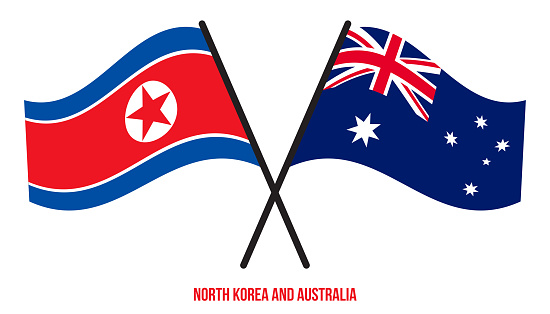Two nations that are extremely different. Australia and North Korea could not more be opposite in the way they conduct their matters.
There are similarities when it comes to the population, but that is really where the buck stops. North Korea (besides China and Russia) is largely a lone wolf, navigating the challenges of diplomatic relationships across the world.
Historically, Australia is seen as a friendly nation that heavily realise on diplomatic relations due to its limited population size and large land mass.
Australia being a functioning democracy and North Korea being a dictatorship also makes for a difficult relationship.
So, that relationship word, it is going to keep popping up a bit, but simply put is there a relationship between the two Asia-Pacific nations?
On the surface level, simply put, no. There is no relationship between the two.
Jeffery Robertson who was a former Foreign Policy maker for the Australian Government, says both countries have no interest in building a relationship as their interests remain different.
North Korea, being the fourth largest army in the world has a main goal of growing their arsenal and their nucellar weapon artillery.
So, if there is no relationship, what would any future one look like. Should we expect it to improve or worsen?
As Petrov says, there is no need to panic just yes, but a good idea to be aware.
North Korea has conducted an unprecedented 31 missile tests to date this year, and the world is bracing for more.
President Xi Jinping of China has pledged to establish a regional counterterrorism training facility and urged his neighbours in Central Asia not to let foreigners use “colour revolutions” to disrupt their countries.
That would mean North Korea is involved.
Furthermore, the ever-changing situation with Russia and Ukraine, combined with the unpredictability of Vladimir Putin leaves the world in a dangerous position.
The explicit support of Russia’s policy in Ukraine by Pyongyang won’t have a significant negative impact on North Korea’s finances or credibility. It makes sense to Kim Jong-un, the leader of North Korea, to develop closer ties with the Kremlin.
A U.N. General Assembly Resolution requesting that Russia withdraw its soldiers from Ukraine was rejected by five nations, including North Korea, saying the move is “immediately, completely, and unconditionally.”
The support is clearly there from Kim Jung-un and his family.
Although the direct relationship with Australia and North Korea may not worsen, it is the associations and affiliations they have that could affect the two.
The likelihood of Australia and North Korea directly being at war is low, but the current tensions between the West and China and Russia makes for a nervous few years.
Ultimately there is no relationship, the chance of there ever being a diplomatic one where issues are solved are little as long as the Kim family are in power, but there could very well be some direct conflict if issues across the globe continue to arise.

